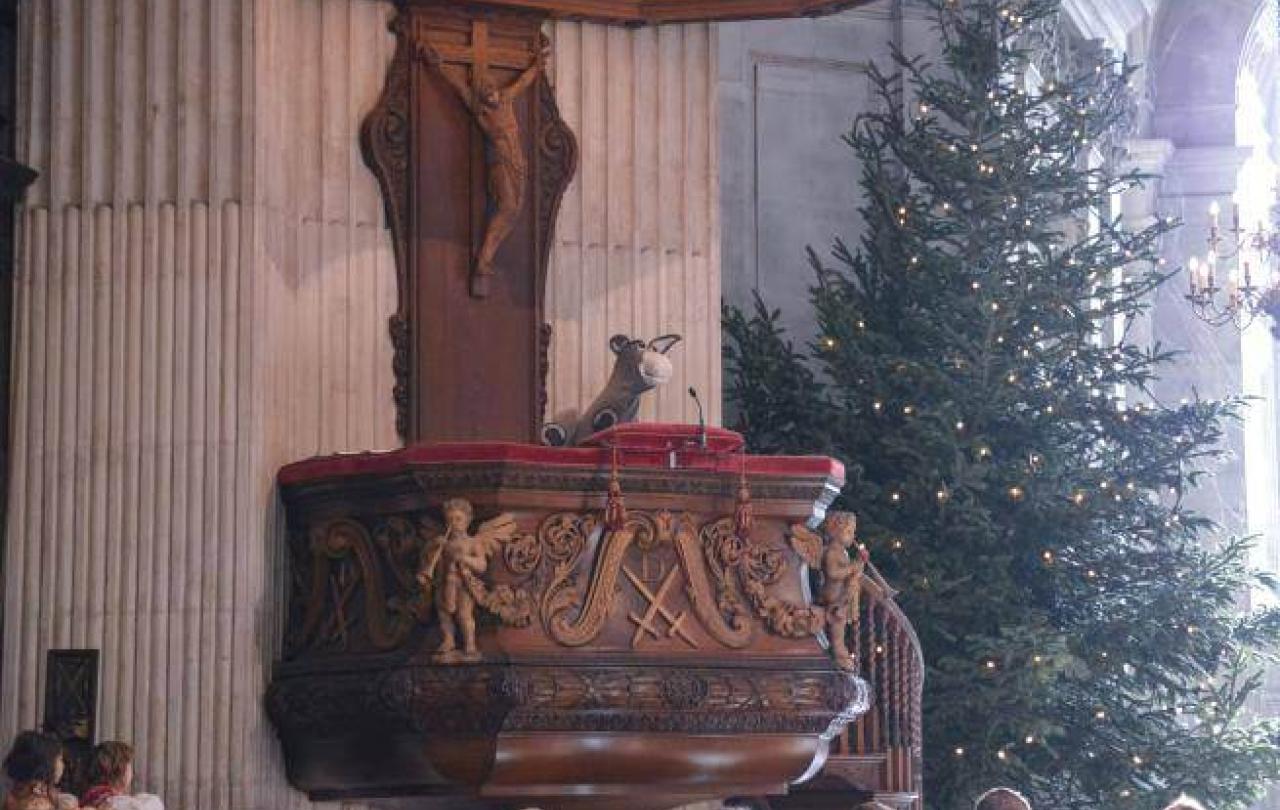
What is it about cathedrals? Under a secular French government, €700 million has been spent on renewing Notre-Dame Cathedral after the 2019 fire disaster. The money hasn’t however come from French taxpayers, but from donations large and small by people in France and from across the world. And the number of people entering cathedrals to visit, or pray, or meet with others keeps going up, even as church attendance declines and religion seems out of fashion – so what’s going on?
Building a large church is a long and very costly process, and Christian communities could take a century or more to build or upgrade a cathedral as resources became available. In lands where Christian faith was embraced by those in power, governments would help to build and endow cathedrals. They were not only central points for worship and church life in their area, but were large covered meeting spaces which were also used by the state for synods, coronations, meetings or services which supported political life and enhanced social cohesion. Communities and rulers wanted to have the best and biggest building they could, to the glory of God (and also that of its builders): and cathedrals were a focus for the best that could be found in architecture and art, sermons in stone and stained glass, colourful high-rise marvels inspiring the inhabitants of an often ugly and dingy low-rise world.
So what explains the enduring attraction of cathedrals, and the emotional bonds between these buildings and us which the rebuilding of Notre Dame has highlighted?
For a start, these buildings are the holders of stories and identities. We humans love a good story. We want to hear, see and tell stories; to make a story out of our own life; to be part of a bigger story which gives us identity and meaning. In cathedrals, I’ve met visitors and pilgrims eager to know the history, in other words the story of such an amazing place and all it contains. There are the visitors writing their own stories who take a picture of their cuddly toy at each tourist destination. And there are the men and women at a crisis point. in their own story who come in search of forgiveness or hope or love, and begin to find it in the great story of God, Jesus and the Christian faith to which a cathedral bears witness.
That holding of identity isn’t only individual, of course. The tragedy of 2019 in Paris was felt across the world, because Notre Dame with its glorious architecture and its treasures is a part of the world’s story with which millions of people have become engaged through their visits and understanding; a tragedy felt of course most deeply in France, where the cathedral is entwined with French history and identity. Each cathedral, whatever its age or size, carries the story of its community and people, is part of our human story, of yours and mine. Their heritage is ours too. The story a cathedral tells about identity, faith and hope can enliven and inspire.
Then again, cathedrals are witnesses. Cathedrals don’t only host state occasions: their role is to be a place for people from a wide geographical and social area to meet and celebrate, worship, mourn, listen and learn. They are places where we are both affirmed and challenged. Whether it’s a local charity concert to help those in need, a major company anniversary, a seminar or a protest venue for people concerned about a hot political, social or religious topic, the mourners of a significant public figure, or a homeless person seeking dignity as well as shelter – cathedrals witness to the value of human life before God. As a cathedral Dean I went from greeting the monarch to talking with Terry the Big Issue seller: for a cathedral, all are beloved by God, and there to be welcomed.
While cathedrals hold story and identity, looking backwards, and witness to and focusing of a local or national community looking around them, you might imagine another axis of attraction as looking forward and upwards, ‘flagships of the Spirit’.
Cathedrals, like all churches, are metaphorical footprints of God in the world: spiritual space set aside to step outside ourselves and our everyday lives, to reflect, to pray and worship, to seek an encounter with the presence of God. When I worked at St Paul’s Cathedral in London, our aim was to enable people in all their diversity to encounter the transforming presence of God in Jesus Christ, whatever that would mean for them; and sometimes we succeeded. A survey of visitors entering cathedrals found that only 10 per cent of them were intending to do something spiritual; but when they came out, 40 per cent of them had prayed, lit a candle, spoken with a priest or gone to worship.
The authorities in Paris are expecting their visitor numbers to go up to 15 million a year after re-opening. Even Donald Trump and Elon Musk were in Notre Dame. Next time you're near a cathedral, why not go and explore the story?'
Join with us - Behind the Seen
Seen & Unseen is free for everyone and is made possible through the generosity of our amazing community of supporters.
If you’re enjoying Seen & Unseen, would you consider making a gift towards our work?
Alongside other benefits (book discounts etc.), you’ll receive an extra fortnightly email from me sharing what I’m reading and my reflections on the ideas that are shaping our times.
Graham Tomlin
Editor-in-Chief






